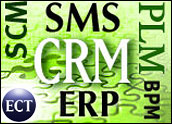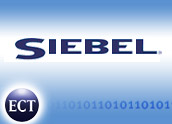
Galyan’s, the sporting goods retailer that features climbing walls, kayak demonstrations and archery ranges in its stores, offers an innovative CRM strategy, too.
For four years, Galyan’s has offered a stand-alone loyalty card, Galyan’s Rewards, that offers points for purchases, gift certificates for points and special perks like invitations to special events.
About a year ago, the retailer introduced its Experience card, a private-label credit card that offers coupons, double Rewards points and an interest-free grace period on large purchases.
The company doesn’t automatically enroll credit-card holders in the loyalty program. In other words, consumers can be members can be members of one program or the other, or they can have the loyalty benefits layered over the private-label credit card.
Is this backward thinking or innovative CRM?
Independent but Cross-Promoting
The card programs run independently, with data storage at different databases and warehouses. But Michael Greenberg, a Galyan’s vice president, acknowledged that the programs feed off of one another.
“Galyan’s cross-promotes the portfolios frequently,” he told CRM Buyer. “We don’t need to use prospect lists to the same extent as other retailers.
“As a company, we’ve always had a commitment to relationship management,” Greenberg said. “The Experience card is not a beginning of relationship management but an extension of it. It gives customers a new way of interacting.”
Smart CRM
Kelly Hlavinka, a director of consulting services at Frequency Marketing in Warrenton, Virginia, thinks Galyan’s has found a smart strategy.
The program, she says, allows the company to allocate the resources of its loyalty program — such as discounts and access to special events — in order to satisfy its most engaged consumers.
“Galyan’s is asking customers to raise their hands on whether or not they want to participate” in the loyalty program, she told CRM Buyer.
Unwise CRM
Gary Hawkins, president of Hawkins Strategic in Skaneateles, New York, sees Galyan’s card strategy as a simple promotional marketing initiative, certainly not part of a comprehensive relationship-building effort.
Auto-enrollment in the loyalty program would sharpen the accuracy of a retailer’s data and its resulting marketing, he said.
“Private-label credit cards rarely capture more than 10 percent of total business,” Hawkins told CRM Buyer. “Galyan’s card is not going to take off.”
Missing Data
By forcing customers to opt into the loyalty program, Galyan’s may believe that only its best customers will choose to join, thus saving Galyan’s money in marketing and fulfilling loyalty benefits.
But Hawkins pointed out that loyalty marketers work hard to identify customers who spend a lot of money.
“Unless they identify 70 percent or 80 percent of top sales, they simply don’t know that they’re getting the best customers,” he said. “They’re not getting an accurate view.”
And especially with benefits like months of interest-free payments on private-label credit card balances following the purchase of an expensive single item, Experience cardholders may only draw that plastic from their pockets to finance costly equipment.
If Galyan’s automatically enrolled credit-card holders in the loyalty program, they might present the card at every purchase, large or small, providing the retailer with more information.
“I’m not going to say that Galyan’s is not getting value from it, but the strategy they’re pursuing will not give them enough data,” Hawkins told CRM Buyer.
Waning of Private Label Cards?
“I have seen other companies pursue this strategy in the past, but I see it at a decreasing rate,” Hawkins said. “It seems fewer are pursuing private-label credit cards today. Retailers just have not seen the relationship return from it.”
Typically the introduction and maintenance of a private-label card is more of a financially driven decision that means lower credit processing fees and more money made off of each transaction, he said. Loyalty programs wedded to these cards aim only to penetrate the market for acquisitions.
Comprehensively collecting data through a ubiquitous loyalty proposition, Hawkins said, will pay off greater than the savings in loyalty benefits, communications and fulfillment to be had from self-selection of rewards on a private-label credit card, he concluded.
Hlavinka, on the other hand, predicted that more retailers will move to self-selection of loyalty benefits on their private-label credit cards. “Retailers are going to ask, ‘Do I auto-enroll?’ and take a careful consideration of their objectives,” she said. “I do think this is a wise way to go.”























































